Dominicans Are Not Haiti’s Enemies, Corruption and Occupation Are

NEWS JUNKIE POST
Mar 4, 2015 at 10:11 amWe love blood, don’t we? As if, by staring at our reflections in this viscous red liquid we might lose fear. We are horrified and entranced by the eviscerated child in Gaza, or the naked Haitian man sprawled out on some unknown street, a bullet in his head, his life dissipating into a puddle of his own blood: a macabre sort of pornography. Short of this, we will settle for a hanging that calls to mind the writhing movements of the victim whose wrists and ankles were bound when the noose was dropped over his head and yanked around his throat: especially if a video associates the lynching with a torched flag. Such emotion-laden images have the power, not to replace a thousand words, but to erase a million words of common sense and send normally reasonable people into paroxysms of blood letting. As Haiti begins to flirt with a conflict against the Dominican Republic (DR) that might incite a pogrom against Haitian immigrants and people of Haitian ancestry in the DR, we must ask who would benefit most from the bloodbath, try to imagine the mountains of shattered skulls and return our attention to those who are doing the most harm to both countries and indeed wish to depopulate them.
Yes, Dominican hooligans will attack Haitians and burn our dear bicolored flag. They have done so from time immemorial. Curiously now, whenever they do, there is a camera at the ready and a nicely edited video to be immediately shared through social media. In retaliation, Haitian hooligans have presumably climbed to the top of the Dominican Consulate in Petion Ville to take down the Dominican flag and replace it with a Haitian one. Incredibly, they did all this while the normally trigger-happy Haitian paramilitary police (UDMO) made no move to stop, arrest, or even identify them. In Haiti and the DR there have also been peaceful marches and even dances of solidarity, but such measured steps can hardly keep time with the frenzied drums of war.
Fire and splattered blood can dissimulate many things, especially the Felix Bautista embezzlement and money laundering case. Mr. Bautista, a DR senator and formerly a tailor of modest means, must explain the source of his sudden astronomical wealth to a court in a political climate that is hostile to his party (PLD, Partido de la Liberacion Dominicana) and close friend, former President Leonel Fernandez. There is absolutely no way this can be done without implicating former prime minister Laurent Lamothe, US-installed president Michel Martelly and possibly several other prominent Haitian politicians.
Martelly, in particular, is alleged to have changed contracts that were to be granted to Haiti’s state construction company CNE (Centre National des Equipments) and instead granted over $350 million of no-bid reconstruction contracts to companies that Bautista created soon after he put away his sewing machine to become Director of the DR’s Supervisory Office of State Public Works (OISOE). For this, Martelly is alleged to have received over $2.5 million in kickbacks. Rumor has it that there is camera evidence of Martelly personally picking up his loot, hundreds of thousands at a time, from various Dominican banks.
Here is how the con works: Venezuela sells oil to Haiti at 60 percent of the going rate, with the remaining 40 percent being payable over 25 years at one-percent interest. The Haitian state sells the oil at market prices and does as it wishes with the profits, but all the loan, every drop of sweat to pay it with interest during the next 25 years, is to be wrung from the labor of poor Haitians. In effect, Venezuela hands a Clinton-picked occupation president a pile of oil to turn into money. This is the essence of the Petro Caribe deal, started not by Martelly but by Rene Preval’s administration, which might also be dirty. Documents gathered by Nuria Piera, an investigative journalist in the DR, allege that some of the oil profits were paid to Bautista’s companies in reconstruction contracts by Martelly who, in return got a cut of them, in cool cash. Piera’s investigation also alleges that Bautista and his companies did not pay their taxes to the DR government.
The case was brought to court in 2012 but did not stick while Bautista’s buddy, Leonel Fernandez, was president. Now the Bautista defense’s main arguments are that, as a senator, he enjoys immunity and further, that he has previously been tried and absolved for the same charges. In a major blow, the investigative judge has already ruled that Bautista might enjoy immunity from jail but not from being judged. Nuria Piera for her part, has moved on to investigate other scandals in Dominican life, such as the rashes being suffered by people who drink water near the areas being mined for gold by the Canadian company, Barrick. Earlier in 2015, simultaneously with Haitians, on the eastern side of Hispaniola, Dominican students were protesting, workers were on strike, and in general the population was in an uproar about government corruption. Dominicans and Haitians are not each other’s enemies but the enemies of their corrupt governments.
Consider this: who has killed the most Haitians in the last few years? Surely not Dominicans, but the Haitian regime. Every spring that has preceded a request for renewal of the United Nations mission (MINUSTAH) in Haiti has become hunting season. Year after year, starting at carnival time, major Haitian activists with a potential to become presidential or parliamentary candidates have fallen from the bullets of never-identified and never-captured men on motorcycles. Even if we discount these assassinations, should we forget the spectacular death of Judge Jean-Serge Joseph, who had been investigating alleged financial crimes by Martelly’s wife and son, and who claimed before he died, that he had been poisoned. Should we forget how horribly Judge Joseph died merely because he was not lynched and had instead hemorrhaged inside his brain?
The Haitian flag that the Dominican hooligans burned was probably made in China. Or are we no longer able to regard our inability to manufacture our own flag as being equivalent to burning it? Who has appropriated Haitian lands for their tourism projects? Who has disgraced the Haitian Constitution and stomped on the flag for the last 10 years”? Surely not a group of drunken and lewd Dominicans but, rather, a gang of greedy Haitians in our own government. Every year for a decade, Haitian presidents and prime ministers have appeared at the United Nations to invite the international community to rule Haiti for yet another year because, presumably, we, citizens of the world’s first black republic, cannot govern ourselves. Nothing: not the gang rapes, not the murders, not the child prostitution, not even the cholera introduced by the so-called peacekeepers, have induced the Haitian regimes to say “no” to the United Nations. The regime of the last four years has decreed that the mayors should be gone, and the judges, and the departmental officials. Now the parliament is gone too. Only they remain: the supreme leaders who have held no elections but dutifully organized, every year, a Carnaval des Fleurs to celebrate the US invasion of Haiti on July 28, 1915. To amuse the international community and admiring females, they jump up and down and thump on their chests. Could any actions by Dominicans humiliate us more than this?
The Haitian regime and the Dominican PLD party have every interest to fan the flames of animosity between Haitians and Dominicans as a distraction from their financial crimes. On March 27, 2015, an investigative judge in the DR will decide whether there is sufficient evidence for the case against Bautista to go forward. All Haitians who have ever agitated to rid the country of its foreign occupation should be thrilled to let the chips fall where they may. Let us hope that the case will go to trial, and that Martelly and Lamothe will be dragged to the DR to testify and, later, to be criminally prosecuted. Hopefully they will wind up making an extended stay in the prisons there. If so, the day they go, Haitians and Dominicans should throw a special island-wide carnival to celebrate the return of life and incarceration of the dealers of death.
Editor’s Notes: Photographs one and three by Zoriah; two by Stack Attack; four, five, six and seven from the archive of Remolacha Oficial.
For more from Dady Chery on Haitian-Dominican relations, read We Have Dared to be Free: Haiti’s Struggle Against Occupation, available as a paperback from Amazon and e-book from Kindle and other vendors.
Related Articles
- April 8, 2014 Human Rights Organizations: Widespread Abuse and Police Brutality in Haiti’s Ile a Vache
- April 21, 2014 What Kind of Tourism Is Sustainable for Haiti’s Ile a Vache? Interview With Melinda Wilson
- October 23, 2013 Haiti: Where Democracy and Justice Make a Stand Against Corrupt Power
- December 2, 2013 Dominican-Haitian Tensions: Wag the Dog or Prelude to Genocide?
- November 29, 2012 Haiti’s Gold Rush: An Ecological Crime in the Making
- September 22, 2015 Haiti: Election Circus for Diaspora, More Kaka from MINUSTAH

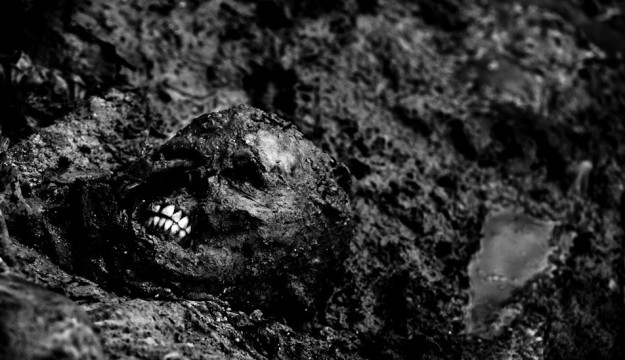
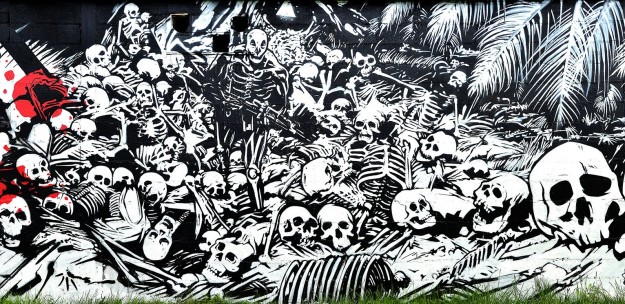
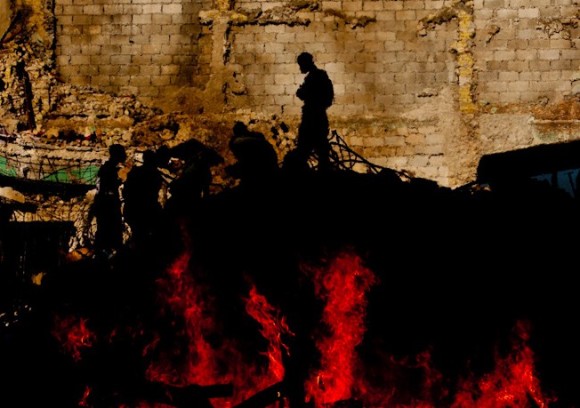
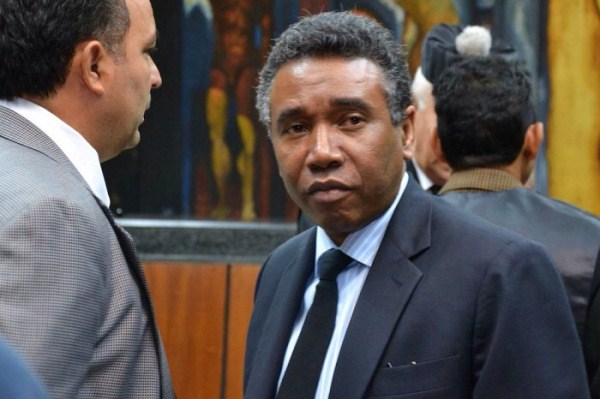
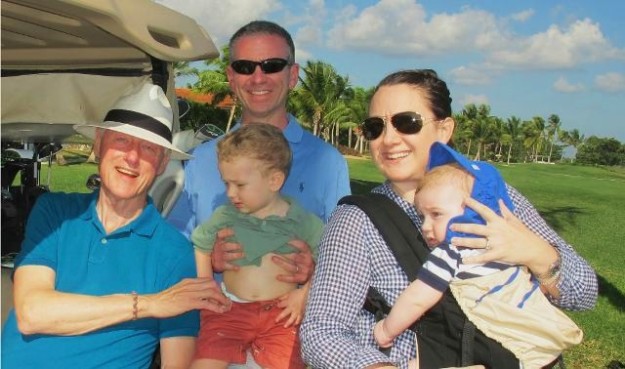
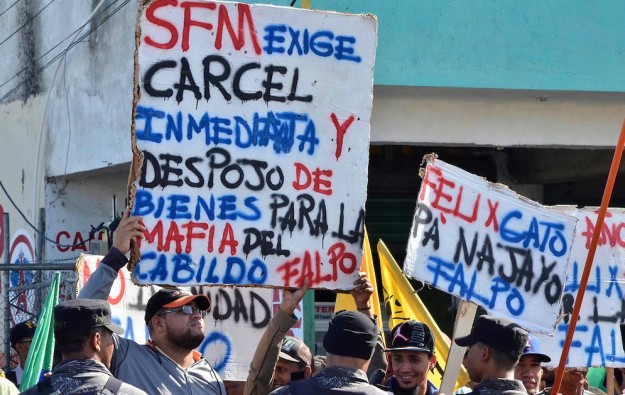
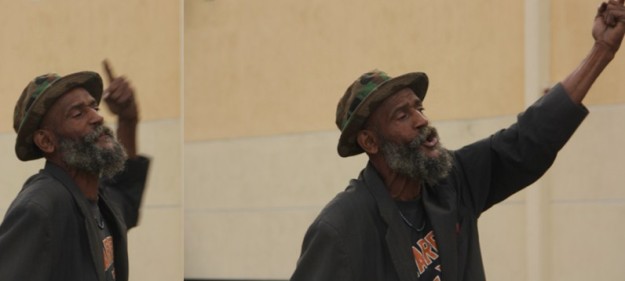
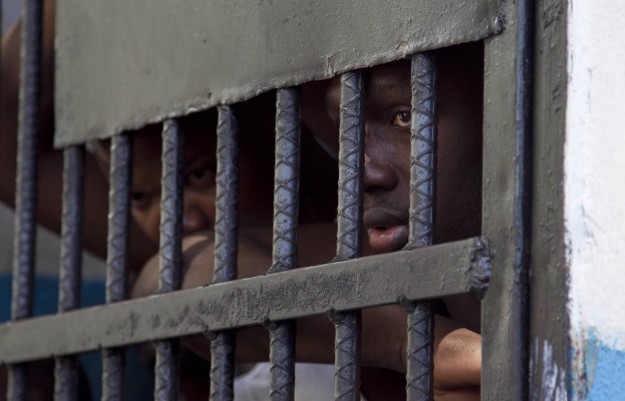
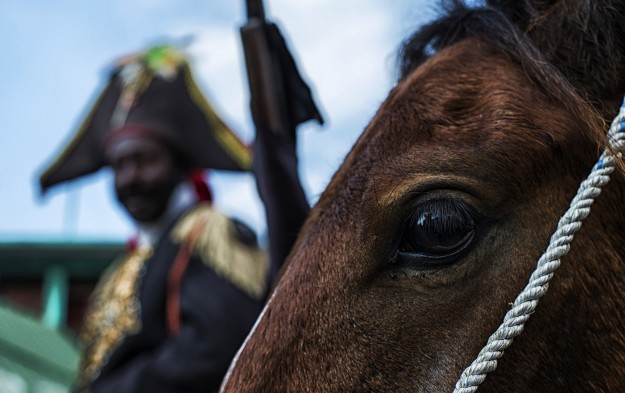
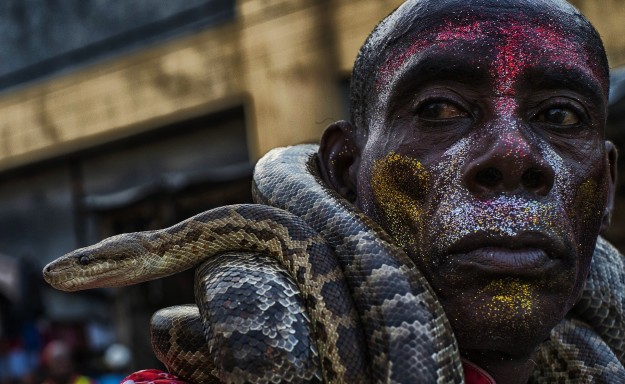











23 Responses to Dominicans Are Not Haiti’s Enemies, Corruption and Occupation Are
You must be logged in to post a comment Login